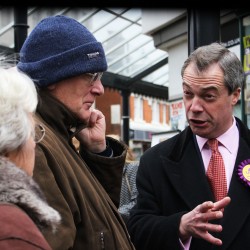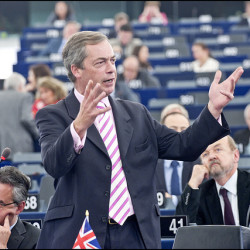
The 2015 Election: Do all roads lead to UKIP?
Do the Conservatives or Labour need to worry most about UKIP in 2015? Certainly, Labour constituencies see fairly high levels of UKIP support (notably at the recent Heywood & Middleton by-election), suggesting there is credence to the argument that Labour is losing its disaffected traditional and typically working class voters to UKIP. At the same time we have already shown (Evans and Mellon BES Blog 2014) that most UKIP voters say they had previously voted Conservative. So is the argument about UKIP stealing core Labour voters spurious? How do we reconcile evidence of UKIP support in traditional working class Labour constituencies with the individual level evidence that UKIP voters, or at least those currently intending to vote for UKIP, report being Conservatives in 2010? In this blog we develop a better understanding of the sources and implications of UKIP support by looking back over a longer time period.
Our argument is that Labour’s move to the ‘liberal consensus’ on the EU and immigration left many of their core voters out in the cold a long time before UKIP were an effective political presence. These voters left Labour in 2001, 2005 and 2010. To some degree therefore what UKIP are doing is picking up already disaffected former Labour voters from the Conservatives and elsewhere. UKIP will not be a great threat to too many Labour seats, they will probably steal more votes from the opposition parties in those seats, or people who had not voted in 2010. Hence the ‘mis-match between’ constituency level findings and individual voters’ reported patterns of defection.

UKIP: Picking up lumps of old labour support?
At the final stages of the EU election campaign the leaders put their cases forward to promote their parties. The latest and final interview on The Today Programme on Wednesday 21st May saw Nigel Farage proclaiming the status of UKIP as a broad appeal party, taking votes from across both Conservatives and Labour. His point being that UKIP is not just a transient ‘protest vote’ against the current government, despite typically forthright probing and suggestions to the contrary from John Humphreys. Farage is adamant that UKIP are “Picking up lumps of old labour support” and that former Conservatives comprise only a minority of UKIP’s support.
But what does the most recent wave of British Election Study data (which was taken between 20th Feb-9th March 2014) tell us? Is UKIP the new BNP? Do they pull in the disaffected old left working class voters deserted by ‘new’ Labour in recent decades? It has become commonplace to assert this, not just by Farage, but in various journalistic accounts and even academic ones. The implication being that UKIP is not only a threat to the Conservatives but also to Labour.










